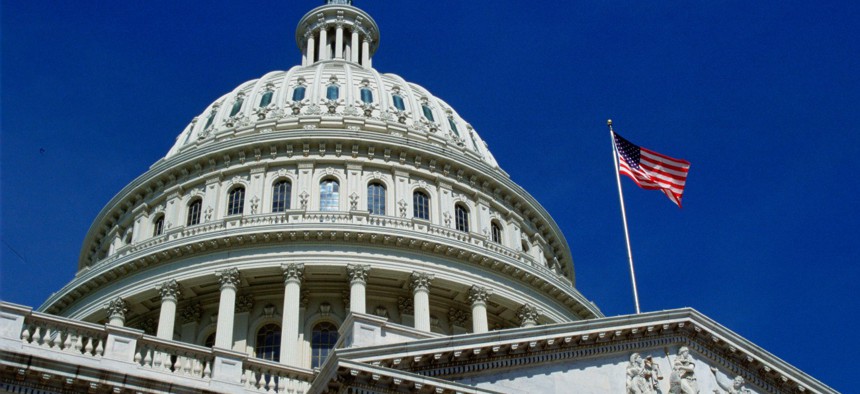
Tim Graham / Getty Images
A Senate Panel Will Consider Nominees for Two Boards That Govern Federal Employee Issues - Again
A lack of Republican cooperation meant candidates for key administration posts at FLRA and MSPB had to be renominated by President Biden this month.
A Senate panel is poised on Wednesday to advance a cadre of nominees for two boards that govern federal employee issues for a second time.
Last year, the Senate Homeland Security and Governmental Affairs Committee approved two nominees to serve on the Federal Labor Relations Authority and a full slate of three nominees for the Merit Systems Protection Board. But those nominations were never brought to the floor for confirmation votes.
If a nomination has not reached the floor before the end of a calendar year, it can only carry over to the next year with bipartisan support; otherwise, the president must renominate the individual for the position.
According to a committee aide, while Republicans were willing to carry over two nominees to serve on the MSPB—Raymond Limon and Tristan Leavitt—they did not extend that cooperation to Cathy Harris, who was nominated to be MSPB chairwoman, or to any of President Biden’s nominees to serve at the FLRA. Harris and each FLRA nominee originally advanced out of committee by a party-line vote.
During Harris’ confirmation hearing, Republican senators pressed Harris on tweets that disparaged some conservatives, although she committed to taking a non-partisan approach as she adjudicates cases before the MSPB. The MSPB has been without a quorum for five years, leaving thousands of current and former federal employees in limbo, unable to receive a decision on their challenges against adverse personnel actions.
On the FLRA side, current chairman Ernest DuBester, who is currently serving on an expired term; former MSPB Chairwoman Susan Tsui Grundmann, who would replace Member James Abbott; and Kurt Rumsfeld, who was tapped by Biden to serve as the agency’s general counsel, all must receive new committee votes on Wednesday. Although their confirmation hearing was mostly uneventful, Republicans withheld their support for the nominees, instead preferring to wait until July 2022 when FLRA Member Colleen Duffy Kiko’s term expires.
“We have concerns about Mr. DuBester’s current role as chair, and when you look at the data, his office ranks as the least productive office in the agency, so there are some concerns there,” said Sen. Rob Portman, R-Ohio, last November. “But second, we believe that because there is a quorum [on the FLRA] now and would be until July of next year, which is when the Republican nominee becomes open, we’d like to see this done in a bipartisan way with Republicans and Democrats nominated [at the same time].”
But under Portman’s proposal, the FLRA would retain a Republican majority for an additional six months, in addition to the entire first year of Biden’s presidency.
Last week, International Federation of Professional and Technical Employees President Matt Biggs partially blamed Senate Majority Leader Chuck Schumer’s failure to schedule the FLRA nominees for a confirmation vote for a controversial decision by the GOP majority at the agency to continue efforts to bust the union representing immigration judges at the Justice Department, despite the fact that the Justice Department last month requested the agency reverse its decision and began voluntarily recognizing the union.







